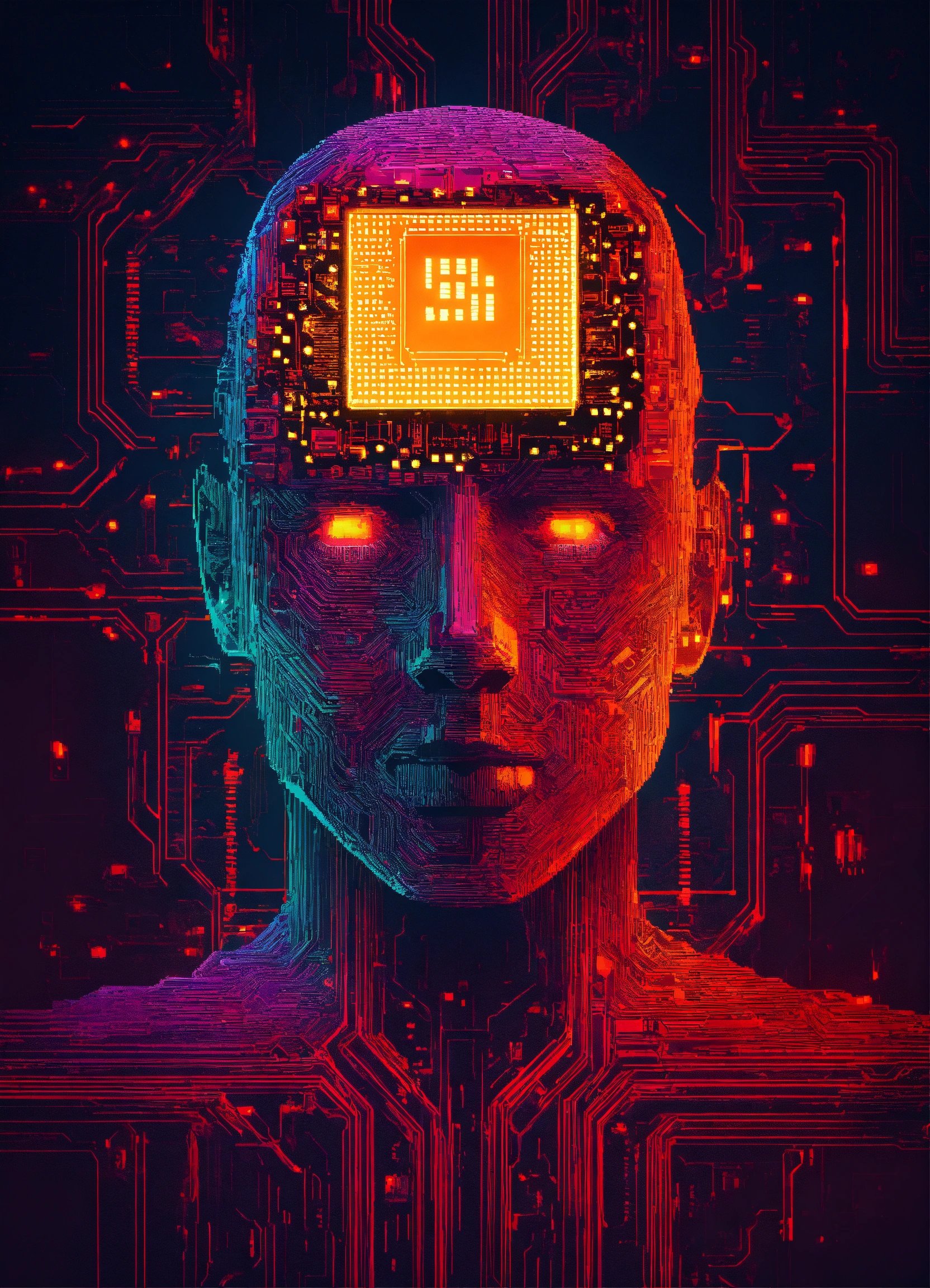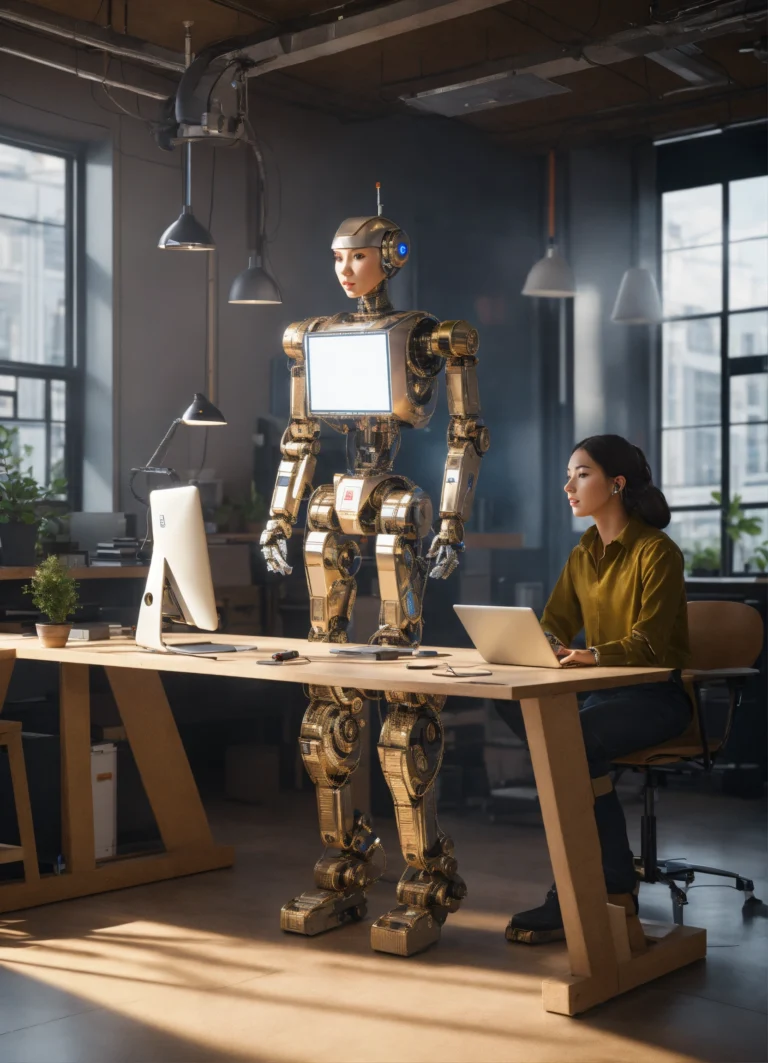You interact with Artificial Intelligence (AI) more than you may realize. From recommending movies on streaming platforms to driving assistance in your car, AI has seamlessly integrated into your daily routine. This technology learns from your behaviors, predicts your needs, and even helps personalize your online shopping experience. As you go about your day, take a moment to appreciate the ways AI simplifies tasks and enhances convenience in your life.
The Rise of AI
Historical Background
To understand the rise of AI, you need to look back at its historical background. The concept of artificial intelligence dates back to the 1950s, with early developments focusing on symbolic reasoning and problem-solving.
Recent Advancements
To grasp the latest in AI technology, you must explore recent advancements. Today, AI has made significant strides in areas such as machine learning, natural language processing, and computer vision. These advancements have revolutionized industries like healthcare, finance, and transportation.
For instance, machine learning algorithms have enabled computers to learn from data and make decisions without explicit programming. In the healthcare sector, AI is being used to analyze medical images and assist doctors in diagnosing diseases more accurately and efficiently. Moreover, in the transportation industry, AI is powering autonomous vehicles that have the potential to reduce accidents and optimize traffic flow on the roads.
AI in Home and Work
Virtual Assistants
The rise of virtual assistants in both your home and workplace has transformed the way you interact with technology. Any task, from setting reminders to answering questions, can be easily accomplished by simply asking your virtual assistant for help.
Smart Home Devices
The integration of AI in smart home devices like thermostats, security cameras, and lighting systems has made your living space more convenient and efficient. The ability to control your home’s temperature, monitor for intruders, and adjust lighting all from your smartphone is truly revolutionary.
To further enhance your smart home experience, consider investing in devices that communicate with each other seamlessly through AI, creating a truly interconnected and efficient living environment.
Automation in the Workplace
One of the most significant impacts of AI in the workplace is the automation of repetitive tasks, allowing you to focus on more strategic and creative aspects of your job. With AI handling routine processes, you have more time to innovate and problem-solve, ultimately increasing productivity and job satisfaction.
Home and work environments are being significantly impacted by AI, creating more efficient and convenient spaces for you to live and work in. The integration of virtual assistants, smart home devices, and automation in the workplace is revolutionizing daily life, making tasks easier and more enjoyable for you.
AI in Healthcare
Diagnosis and Treatment
To improve healthcare, AI plays a vital role in aiding doctors with accurate diagnosis and effective treatment plans. Using vast amounts of data, AI algorithms can analyze symptoms, medical records, and research to provide accurate diagnoses in a fraction of the time it takes for a human. This speeds up the treatment process and increases the chances of successful outcomes for patients.
Personalized Medicine
On the frontier of healthcare, AI is transforming the field of personalized medicine. Through genetic analysis and data mining, AI can tailor treatments to each individual’s unique genetic makeup and health history. This precision medicine approach enhances treatment effectiveness and reduces the risk of adverse reactions.
Medicine: Personalized medicine heralds a new era of healthcare where treatments are specifically designed for you based on your genetic predispositions, lifestyle factors, and medical history. By considering these individual characteristics, doctors can prescribe medications and therapies that have a higher chance of success and fewer side effects.
Remote Patient Monitoring
Remote patient monitoring is another area revolutionized by AI technology. With wearable devices and sensors, AI can track your vital signs, activity levels, and medication adherence in real-time, even from the comfort of your home. This continuous monitoring allows healthcare providers to intervene early when issues arise, improving patient outcomes and reducing hospitalizations.
For instance: In cases of chronic conditions like diabetes or heart disease, remote patient monitoring can help detect warning signs of complications before they escalate, leading to timely interventions that can save lives and improve quality of life.
AI in Transportation
Self-Driving Cars
Not too long ago, the idea of self-driving cars seemed like science fiction. But with advancements in AI technology, companies are now testing autonomous vehicles on the road. Your commute could soon become much more relaxing as you sit back and let the car do the driving.
Intelligent Traffic Management
Management
This innovative AI application involves using algorithms to analyze traffic patterns and adjust signals in real-time. This dynamic system can help reduce traffic congestion, shorten travel times, and improve road safety for everyone.
Autonomous Delivery Systems
The
Intelligent
The rise of autonomous delivery systems, like drones and self-driving robots, is revolutionizing the way packages are delivered. You might soon find your online orders being dropped off by a robot at your doorstep, efficiently and securely.
AI in Education
Personalized Learning
Keep up with the latest advancements in education with AI-powered personalized learning. An AI system can analyze your learning pace, preferences, and strengths to tailor educational materials specifically to your needs, helping you to reach your full potential.
Intelligent Tutoring Systems
An intelligent tutoring system can provide you with individualized support and guidance throughout your learning journey. By tracking your progress, understanding your learning style, and adapting to your needs, these systems offer a personalized learning experience that enhances your understanding and retention of the material.
Learning with an intelligent tutoring system can significantly boost your academic performance by providing targeted feedback, practice exercises, and real-time assistance. These systems can adapt to your pace, offering additional help in areas where you struggle and advancing you quickly through topics you grasp easily.
AI-powered Adaptive Assessments
Intelligent AI-powered assessments can evaluate your knowledge and skills in a dynamic and tailored way. By analyzing your responses in real-time, these assessments can identify your strengths and weaknesses, providing targeted feedback to help you improve your understanding in specific areas.
Assessments powered by AI can revolutionize the way you test your knowledge by offering customized assessments that adapt to your performance levels. These assessments ensure that you are challenged appropriately, leading to a more accurate evaluation of your skills and knowledge.
AI in Entertainment
Recommendation Systems
After you finish watching a movie or show on a streaming platform, you might notice a list of suggestions popping up. These recommendation systems use AI algorithms to analyze your viewing history and preferences, helping you discover content tailored to your taste.
AI-generated Content
To add excitement to your entertainment experience, AI-generated content is becoming increasingly popular. An AI system can create music, art, and even write stories autonomously, providing a fresh and unique perspective to explore.
An AI-generated Content: AI-generated content is not only innovating the creative landscape but also raising questions about the authenticity and originality of the work. As AI continues to advance, it becomes crucial to consider the source and ethical implications of generated content.
Virtual Reality Experiences
On your gaming console or VR headset, you can immerse yourself in captivating virtual reality experiences powered by AI. These simulations transport you to fantastical worlds and interactive adventures, offering a new level of engagement and excitement.
For instance, AI in virtual reality experiences can enhance the level of customization and interactivity in games, making the gameplay more immersive and responsive to your actions. However, it’s important to balance the virtual world with the real one to prevent potential negative effects on users’ health and well-being.
To wrap up
Presently, you can see how Artificial Intelligence is seamlessly integrated into your daily life, from personalized recommendations on streaming services to voice assistants making your tasks easier. As you navigate through the advancements of AI, remember to embrace its benefits while being mindful of potential ethical concerns. By staying informed and curious, you can make the most of this innovative technology in improving your everyday experiences.
Q: What are some common applications of AI in everyday life?
A: AI is used in everyday life in various applications such as virtual assistants like Siri and Alexa, recommendation systems on streaming platforms and e-commerce websites, facial recognition in smartphones, autonomous vehicles, and smart home devices like thermostats and security cameras.
Q: How does AI impact healthcare in daily life?
A: AI has revolutionized healthcare by enabling faster and more accurate diagnosis through medical imaging analysis, personalized treatment plans based on patient data, predictive analytics for disease prevention, and virtual health assistants for patient monitoring and communication with healthcare providers.
Q: Is AI in everyday life a privacy concern?
A: The widespread use of AI in everyday life raises privacy concerns related to data collection, surveillance, and potential misuse of personal information. It is crucial for individuals to be aware of the data being collected and how it is being used to make informed decisions about their privacy and security. Implementing regulations and ethical guidelines can help mitigate these concerns.





